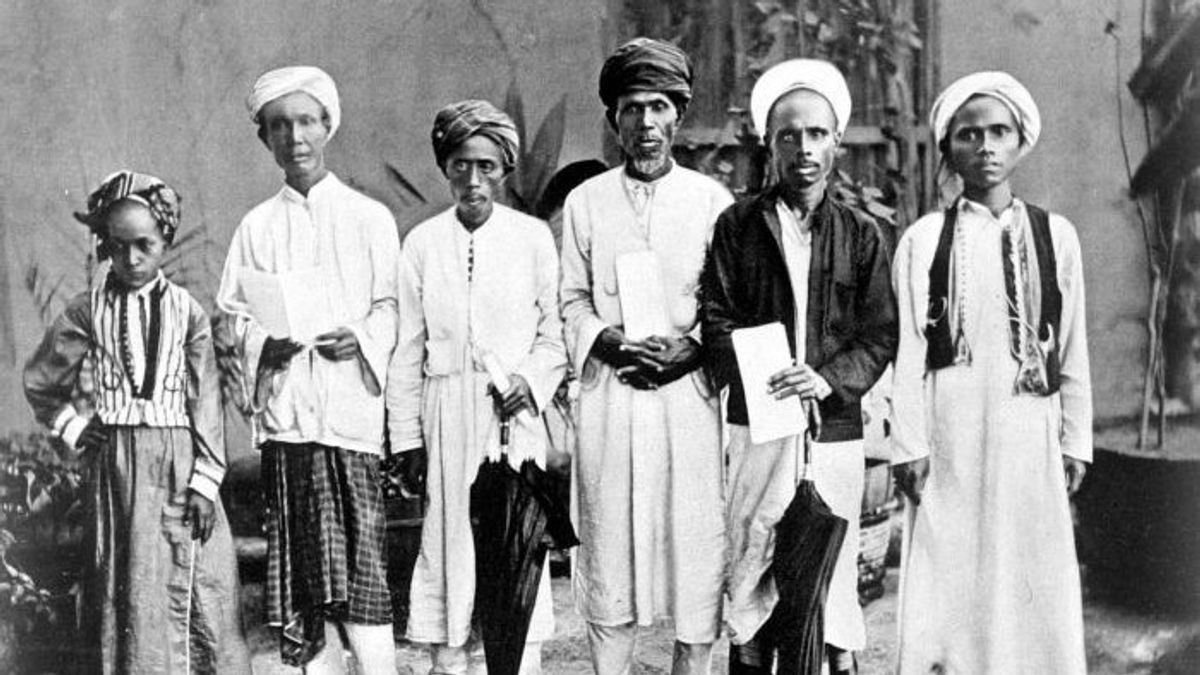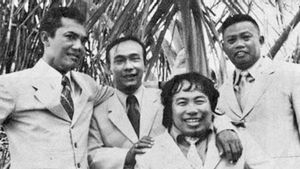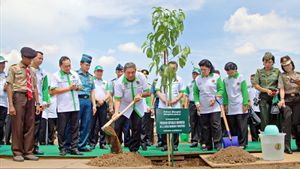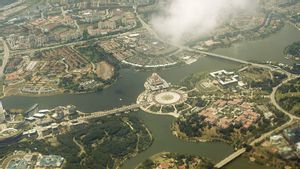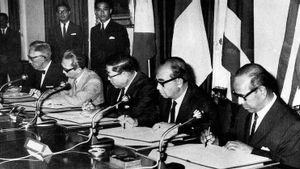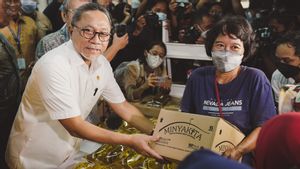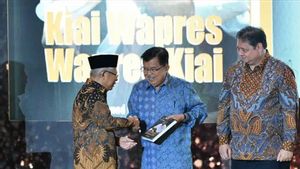JAKARTA - The enthusiasm of the Muslims of the archipelago to carry out the pilgrimage has never subsided. The high price behind the journey to run the 5th Islamic Rukun is not a problem. The activity of going on pilgrimage is increasingly lasting. The Dutch alone did not dare to prohibit the pilgrimage. However, that does not mean that the pilgrimage is never prohibited.
The founder of NU, Kiai Haji (KH) Hasyim Asy'ari once banned the pilgrimage when Indonesia was just independent. The decision was taken because Muslims were in the Revolutionary War (1945-1949). Therefore, the spirit of defending the country became the main thing.
Islam has a big influence on the lives of the bumiputras in the Dutch colonial era. The natives believed Islam was the way of truth. They also flocked to deepen Islam.
Many Muslims choose to study religious knowledge, rather than studying in European schools. Phrases of carrying out religious orders are carried out. Worship on pilgrimage, for example. It is possible that pilgrimage pilgrimage is indeed in the most distended order of the pillars of Islam.
The religious actually think that is the privilege of the 5th Islamic Rukun: go on a pilgrimage to Makkah if you can. Whoever goes on a pilgrimage then they can deepen their religious knowledge and raise their social status in society.
This fact makes those who want to go on pilgrimage. Even though there are not a few funds that need to be prepared. Not to mention the matter of qualified physical preparation. All because Muslims have not used air transportation, they still use ships that spend months in the middle of the ocean.
The journey of the pilgrimage is growing. Many of them who returned from Mecca were transformed into Islamic leaders ulama. This condition in fact brought Dutch concern. Because, some of the scholars who had just returned from Makkah actually inflamed resistance.
They consider the colonial government of the Dutch East Indies to be enemies of Islam. Insurgency thrived. This condition made the Dutch take a stand. Instead of choosing to prohibit the pilgrimage, the Dutch chose to regulate the implementation of the pilgrimage.
The requirements for the pilgrimage are tightened. The costs that must be incurred by prospective pilgrims are getting bigger. This condition did not actually make the whole of the archipelago's desire to go on a pilgrimage. They continued to save until the time for the pilgrimage to depart. Everything is to perfect the Rukun Islam.
The same thing experienced by Hajj, which is equally seen as potentially subversion, until Snouck Hurgronje fought for a smarter approach in the early 20th century. A regulation that applies between 1825 and 1852 aims to hinder the pilgrimage by setting a very large cost, namely 110 guilders, for hajj passports only.
"The new obstacles in 1859 required that each prospective hajj candidate obtain a certificate from his regent stating that he was able to finance the round-trip Hajj trip and leave provisions for the lives of his wife and children at home. Hajj and scholars are the first parties to be suspected if there are anti-European movements. So there is a vicious circle of tension between the government and religious leaders," said Anthony Reid in the book Towards Sumatra History: Between Indonesia and the World (2011).
The existence of Hajj trips is growing in the archipelago. However, that does not mean that the pilgrimage is never prohibited. The prohibition of the pilgrimage was reverberated when Indonesia was independent. The narrative was echoed by the cleric and founder of Nahdlatul Ulama (NU), Kiai Haji (KH) Hasyim Asy'ari.
At that time, Indonesia's independence narrative actually invited the Dutch to rule Indonesia a second time. The Dutch began to perpetuate terror. The Bumiputras, especially Muslims, did not want to be colonized again by the Dutch.
The resistance was also perpetuated. Muslims -- the cascade of scholars and their followers'many who took part in the fight to help the TNI by joining the resistance laskar. NU circles, let alone. This condition made the Revolutionary War break out and the fate of organizing Indonesian Hajj became a question mark.
The scholars took a stand. Hasyim Asy'ari issued a ban on Hajj in the Revolutionary War. The fatwa has a solid foothold. Abdurrahman Wahid's grandfather (Gus Dur) emphasized that the spirit of defending the country must be prioritized.
Defending the state is a common benefit. While the pilgrimage is more for personal purposes only. The Hasyim Asy'ari fatwa is agreed by many parties. The fatwa was collaborated by the Indonesian government in the form of the Minister of Religion's Decree Number 4 of 1947.
The declaration contains a narrative that the pilgrimage was stopped as long as the country was in a precarious state. The prohibition decision was also based on the owner of the power not wanting to make the Dutch a profit. This is because all pilgrimages are still managed by the Dutch. The new Hajj went smoothly again when the Dutch recognized Indonesia's sovereignty in 1949.
SEE ALSO:
When it was a time of revolution, it was very difficult for Indonesian Muslims to carry out the pilgrimage, because they were busy with efforts to defend their newly achieved independence. In addition, it was also due to a fatwa from KH Hasyim Asy'ari, Wahid Hasyim's father, which prohibited Indonesian Muslims from carrying out Hajj as a boycott of the Netherlands.
At that time, the Dutch controlled the shipping fleet used to transport prospective pilgrims. While still in the period of revolution, the Indonesian government twice sent a pilgrimage mission to Saudi Arabia to explain to the Islamic world about Indonesian politics which is prohibiting Indonesian Muslims from carrying out Hajj, as well as asking for support for the struggle that is being carried out by the Indonesian people in opposing colonialism," said Saiful Umam in the book Minister of Religion of the Republic of Indonesia: Social Political Biography (1998).
The English, Chinese, Japanese, Arabic, and French versions are automatically generated by the AI. So there may still be inaccuracies in translating, please always see Indonesian as our main language. (system supported by DigitalSiber.id)
